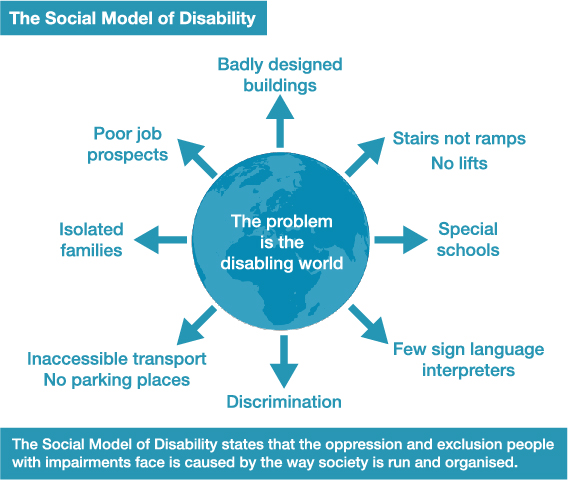Why we need to stop saying ‘people with disabilities’
For UK Disability History Month, a guest post by Josh Hepple on the language of the social model of disability and why using the term ‘Disabled people’ is so important.

This is a guest post by Josh Hepple.
Language is important. Disabled rights activists are keen supporters of the social model of disability. In brief, this model acknowledges that individual people may have various health conditions and impairments, however, this model absolutely puts the emphasis on society to adapt.
The social model was written in response to the medical model, where the individual was encouraged to seek medical intervention to become “less disabled”. However, people with impairments are often either quite proud of who they are or have no options to seek medical intervention.
The social model states that if society adapted, people with impairments would become less disabled. On a very superficial level an adaption might include placing a ramp over some stairs, but adaptions can also be attitudinal (for example, how we interact with each other), and bureaucratic (access to large print forms, for example).
It is therefore absolutely essential to go by the fact that people with impairments are not, by default, disabled. They are only disabled because society has not yet adapted. To take a somewhat crude example: to turn a fire alarm off, an external force would disable it. Nothing would be broken with the fire alarm, however, it would be for the external force to reactivate that fire alarm at a later point. It would be perverse to say the fire alarm had a disability. It doesn’t.
The same can be applied for people with impairments. They have been disabled but do not have disabilities. To use the phrase “People with disabilities” demonstrates a very misguided approach. Unfortunately, I was at a corporate law event recently where the speaker – who was in fact a wheelchair user – repeatedly muddled up ‘Disabled people’ and ‘people with disabilities’. I challenged her and she said that language wasn’t ultimately something she paid specific attention to, but “totally adheres to the social model”. This is contradictory. It is so fundamental to understand why the disabled community use the term ‘Disabled people’ and why this term is so important. The event was about persuading employers to make reasonable adjustments. The only way employers will fully grasp disability is if they see it in the context of the social model.
The model uses a whole vocabulary and understanding the importance of this is key to understanding society’s relationship to people with impairments. Otherwise there is absolutely no way of understanding, or following this model. It is essential to the disabled people’s movement.